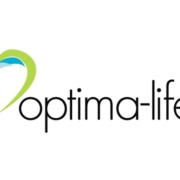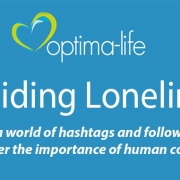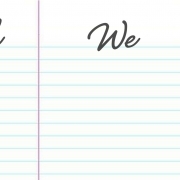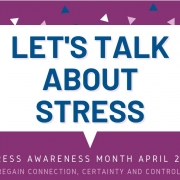Is the word ‘wellbeing’ on the wane?
It can be interesting to reflect on the fashion of words. In the same way that denim has lasted the test of time and flared trousers may come and go, the words which dominate our everyday language change. For example, in my world of work, stress has been dominant for well over a decade, resilience seemed to be highly popular for a couple of years, burnout has burst on to the scene and as for wellbeing – well, that is an interesting one.
The attitude to the word wellbeing seems to be becoming increasingly variable. Many organisations are as committed as ever, for others it is no longer a central pillar of their strategy, and for some businesses they are sick and tired of it (ironic really).
So, what has gone wrong for wellbeing? Why is it dwindling in the popularity stakes? And where is the word going?
With the caveat that the following are personal thoughts, developed from daily discussions with clients and colleagues, here are some things to consider:
- Too much push and too little pull – Whilst information on what to eat, how to exercise or generic content on how to sleep more effectively will work for some, for many it has simply become ‘white noise’. Are people inspired? Has a personalised and emotional connection between an individual and the topic been created?
- Scattergun – The organisations that have provided consistency in delivery are the ones where the topic has stood the test of time. Whether consistency is achieved through branding, the style of delivery, or the spacing of input and the style, people know what is what. This doesn’t mean every intervention or campaign is identical but there will tend to be a golden thread providing connection and comfort.
- Leadership – I am increasingly running programmes for leaders and managers where the emphasis is twofold. How do you look after yourself and how do you lead effectively – how do you create ‘the multiplier effect’? Leaders do not have to be wellbeing experts nor do they need to be perfect in their behaviours, but they should be empathetic and encouraging. If they are not delivering the CRAFT of leadership (Clarity, Relationships, Authenticity, Fairness and Thanks), they may benefit from building these skills. Skills which are so important in promoting the human and humane side of performance.
- Measure the why and not just the what – What are the engagement scores? Where is absence currently? How is the attrition rate of our talent? These are all great questions but how many surveys really get to grips with the question why? Benefits need to be evaluated both by numbers and commentary. Personal and organisational stories need to be explored intellectually and emotionally if you want to get a greater level of understanding.
- Ticking the box and keeping up with the Joneses – I feel several organisations may be guilty of following the crowd as opposed to reflecting on what is right for their people at a particular moment in time, others may consider wellbeing as a tick box exercise and, dare I say it, some see it as a bragging right. Beware, people see through this after a while. Be proud of what you are doing and celebrate the advances that are made, but recognise that wellbeing is a faciliatory function, part of the corporate machine yes, but it is not the machine in its entirety.
As for the future, who knows where the word wellbeing will get to? For some it will be embedded into the DNA of the workplace, for others it will be falling down the agenda like a lead balloon, for most it will be somewhere in between.
From my point of view, the factors which influence health, energy, focus, mission, relationships, recovery and managing anxiety are the ‘Key Human Performance Indicators’. They are essential catalysts for sustained success in life both at and away from work.
Whether we consider these skills as factors that contribute to ‘wellbeing’ or ‘resilience’ or ‘balance’ or ‘leadership’; whatever the wrapping paper that sits around them… ignore them at your peril.










